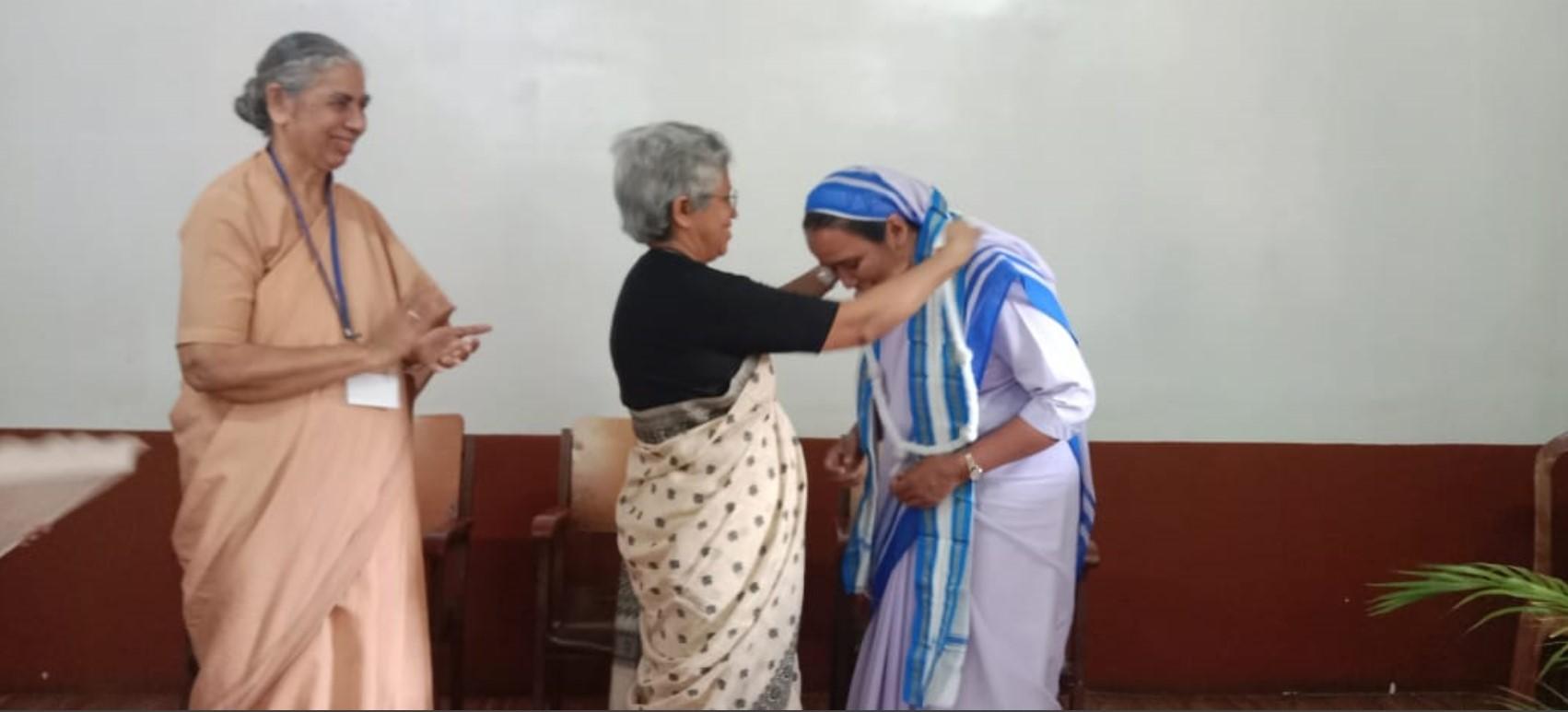MUMBAI – An Indian nun who recently received a global honor for her efforts to combat human trafficking has called upon the estimated 100,000 religious sisters in her vast nation to join the fight, saying that by so doing “we could save many lives.”
Sister Seli Thomas, a member of the Sisters of Mary Immaculate in Krishnagar, West Bengal, made the call during a Nov. 24-26 meeting of Amrat Talitha Kum India, a network of religious sisters involved in anti-trafficking efforts.
“Amrat,” which stands for Asian Movement of Women Religious Against Human Trafficking, and which also represents a Hindi term for life-giving water, was founded in 2009 by Sister Jyoti Pinto of the Congregation of the Sisters of the Little Flower of Bethany. It’s part of the global Talitha Kum alliance, which is sponsored by the International Unions of Superiors General (UISG), a Rome-based federation of leaders of women’s religious orders.
“More than 100,000 religious sisters are in India, according to the statistics shown during the session,” Seli said. That figure is in line with estimates from the Georgetown-based Center for Applied Research in the Apostolate, which estimates that India has more nuns than any other country in the world, with Italy and the United States rounding out the top three.
“If we all could work together under Amrat for the anti-trafficking through our own ministry, we could save many lives from being trafficked,” Seli said.
Seli recently was among three recipients of the inaugural Sisters Anti-Trafficking Awards (SATA) in London Oct. 31, bestowed by Arise, an anti-slavery NGO, the UISG, and the Conrad N. Hilton Foundation. She also received a “Common Good Award” at the Amrat gathering.
RELATED: Indian nun says she fights human trafficking ‘one person at a time’
“Amrat is a movement, so let’s be united to hear the cry of the women and children trafficked. In our own communities, in our own place of work like in our schools, hospitals, in our centers let’s spread the awareness of human trafficking,” Seli said.
Sister Prema Chowallur of the Sisters of the Cross of Chavanod, who serves the transgender community, described the Amrat summit as “very unique, as the number was large and those who present were very enthusiastic and eager to learn from one another.”
According to organizers, the event drew 170 nuns representing 80 different congregations.
“Importantly, this meeting was to motivate more women religious across India to take up this challenging ministry,” Chowallur told Crux. “Besides this, [it aimed] to capacitate the sisters with different skills to address ground level realities on the issue. This meeting also helped the members to create a strong bond between the network members.”
Sister Crina Cardozo from Goa said that “the capacity-building program enkindled in me the fire to work for this cause,” while Sister Beena from Gujarat region said Amrat is an important platform for sisters to share their anxieties, especially when they go for rescue operations.
“There are many challenges that come on our way, let that be our opportunity to save someone’s life,” Seli said.
According to the International Labour Organization (ILO) and the Walk Free Foundation, 27.6 million people were in forced labor in 2021, with 17.3 million are exploited in the private sector, 6.3 million in forced commercial sexual exploitation, and 3.9 million in forced labor imposed by the state.
More broadly, the same organizations estimate that 49.6 million people were in “modern slavery” in 2021, combining data both for forced labor and forced marriages.
In India, the Global Slavery Index estimates that 8 million people in India, including children and teenagers, live in forms of modern slavery, where violence, coercion and deception are used to exploit people.















